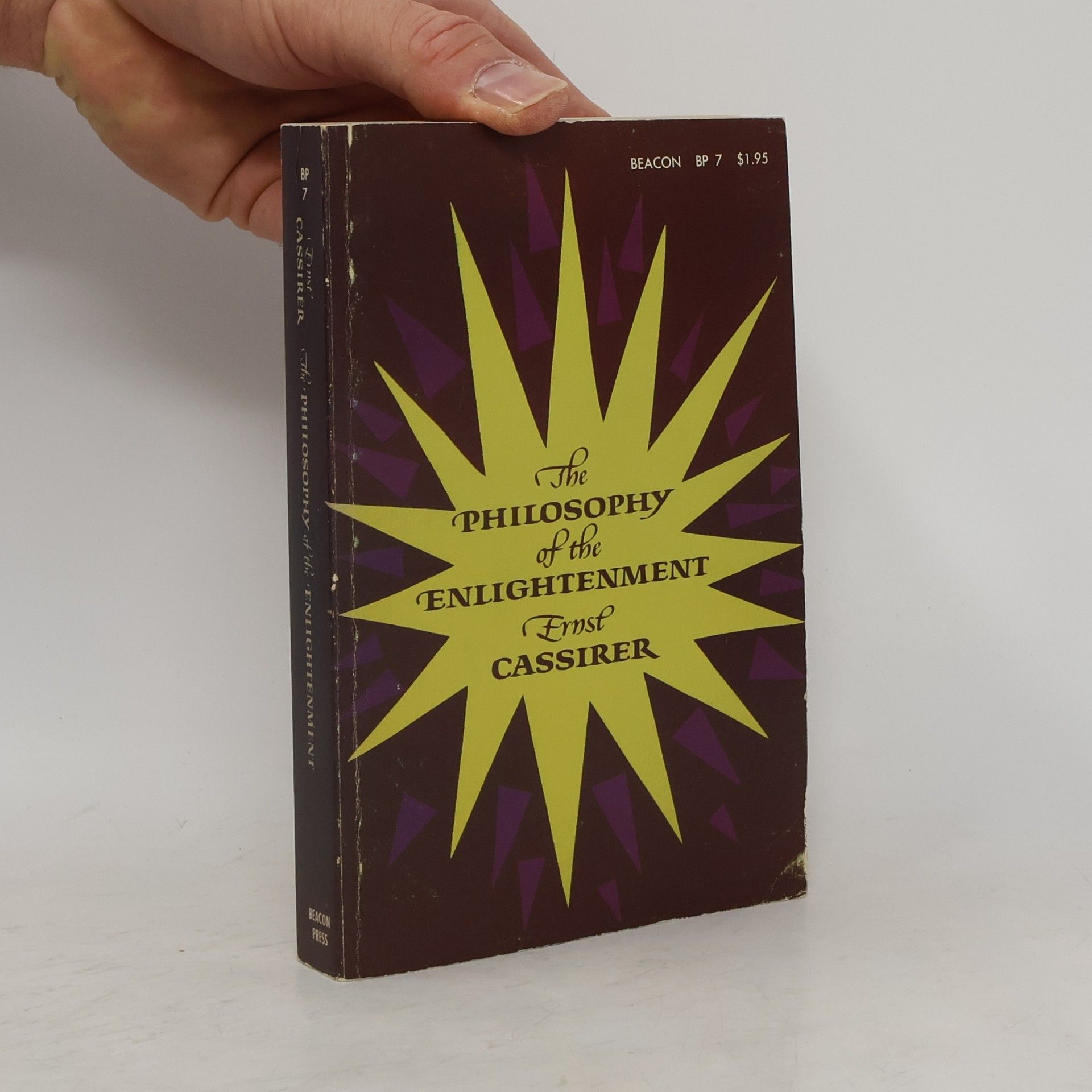Exploring the significance of myth in human thought and expression, this volume delves into how mythical frameworks shape our understanding of the world. Cassirer's influential work offers a profound analysis of symbolic forms, emphasizing the interplay between myth and culture. This new translation makes his insights accessible to contemporary students and scholars, ensuring that his contributions to philosophy continue to resonate.
Ernst Cassirer Boeken
Ernst Cassirer was een belangrijke figuur in het filosofisch idealisme in de eerste helft van de twintigste eeuw. Voortkomend uit de Marburgse traditie van het neokantianisme, ontwikkelde hij een cultuurfilosofie, gegrondvest op een symbolentheorie en een fenomenologie van de kennis. Zijn werk duikt in de diepgaande vragen van menselijk begrip en de manifestatie daarvan in diverse culturele vormen.







The Philosophy of Symbolic Forms is Cassirer's most important work. This major new translation brings his magnum opus to a new generation of students and scholars. Volume 3: The Phenomenology of Knowledge is an exploration of epistemology, perception and consciousness across the human sciences
Focusing on the intricate relationship between human language and symbolic expression, this major work by Cassirer delves into the nature of language as a foundational system of communication. The new translation makes this essential text accessible for contemporary students and scholars, highlighting its significance in the study of philosophy and symbolism. Volume 1 serves as a critical exploration of how language shapes human experience and understanding.
The Individual and the Cosmos in Renaissance Philosophy
- 216bladzijden
- 8 uur lezen
Exploring the intricate relationships between philosophy, language, art, and science, Ernst Cassirer delves into the contributions of influential thinkers such as Leonardo, Galileo, Pico della Mirandola, and Giordano Bruno. This classic work highlights the interconnectedness of human thought and creativity, emphasizing how these elements shape our understanding of the cosmos and individual existence.
Rousseau-Kant-Goethe
- 118bladzijden
- 5 uur lezen
The book features translations by notable scholars James Gutmann, Paul Oskar Kristeller, and John Herman Randall, Jr., showcasing a significant work that explores philosophical concepts. The translators bring their expertise to the text, ensuring clarity and accessibility for readers. This edition aims to deepen the understanding of the original material, making it relevant for contemporary audiences interested in philosophy and its historical context. The collaborative effort highlights the importance of scholarly translation in preserving and interpreting classic works.
One of the twentieth century’s greatest philosophers presents the results of his lifetime study of man’s cultural achievements. An Essay on Man is an original synthesis of contemporary knowledge, a unique interpretation of the intellectual crisis of our time, and a brilliant vindication of man’s ability to resolve human problems by the courageous use of his mind. What the thinkers of the past have thought of the human race, what can be said of its art, language, and capacities for good and evil in the light of modern knowledge are discussed by a great philosopher who had a profound experience of the past and of his own time.
One of the twentieth century's greatest philosophers presents the results of his lifetime study of man's cultural achievements An Essay on Man is an original synthesis of contemporary knowledge, a unique interpretation of the intellectual crisis of our time, and a brilliant vindication of man's ability to resolve human problems by the courageous use of his mind. In a new introduction Peter E. Gordon situates the book among Cassirer's greater body of work, and looks at why his "hymn to humanity in an inhuman age" still resonates with readers today. "The best-balanced and most mature expression of [Cassirer's] thought."--Journal of Philosophy "No reader of this book can fail to be struck by the grandeur of its program or by the sensitive humanism of the author."--Ernest Nagel, The Humanist "A rare work of philosophy and a rare work of art."--Tomorrow
Dieser Band präsentiert erstmals Cassirers Vorlesungen zur antiken Philosophie von 1935 und 1942. Er untersucht den Übergang vom mythischen zum theoretischen Denkstil in der griechischen Kultur und bietet einen Überblick über die Entwicklung des Denkens von den Ioniern bis zu den Neuplatonikern, mit Fokus auf Platon und Aristoteles.
The Philosophy of Symbolic Forms is Cassirer's most important work. This major new translation brings his magnum opus to a new generation of students and scholars. Volume 1: Language is a fascinating examination of arguably the most fundamental of these systems of expression: human language.
